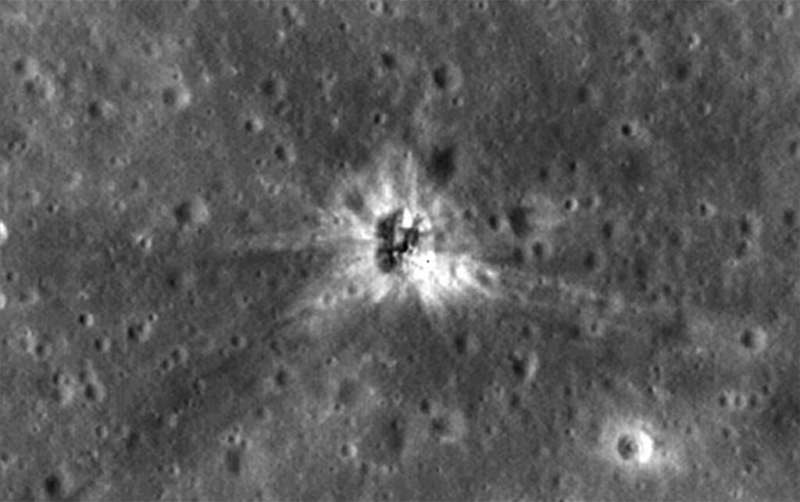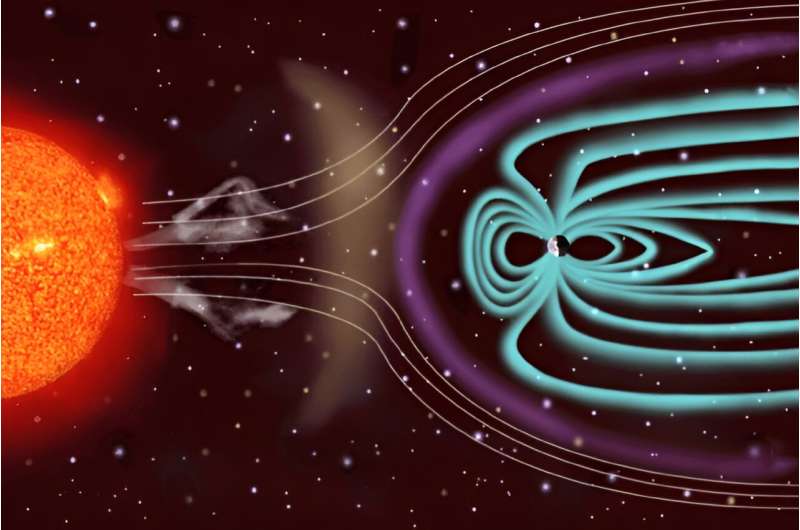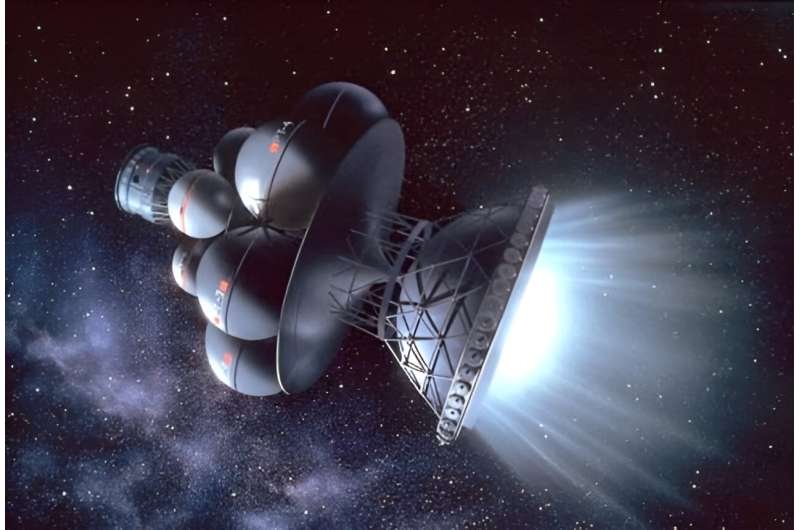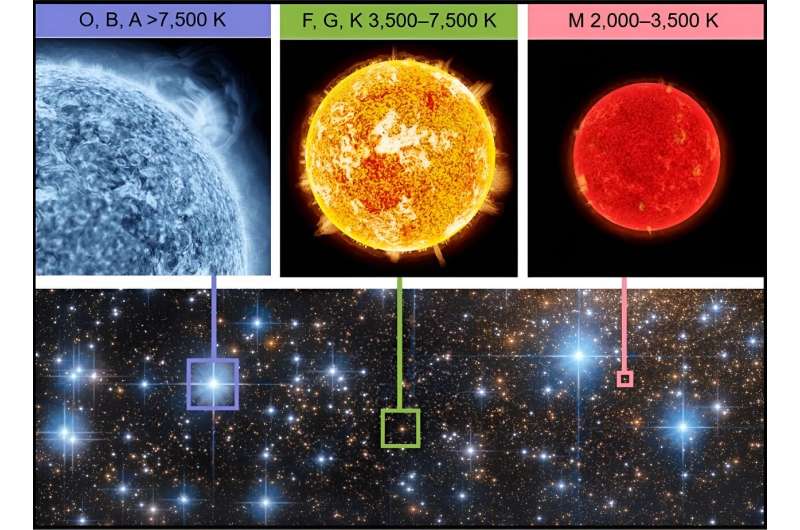
Copernical Team
Satellite swarm to provide 'missing link' between space weather and space debris
 The European Space Agency (ESA) has funded a new mission concept involving a "swarm" of satellites to address the growing threat of space debris. The news comes as just this week the US government issued its first ever fine to a company for leaving space junk orbiting the Earth.
Space debris poses a huge problem for global communication systems and space exploration efforts. Over 50,000 pi
The European Space Agency (ESA) has funded a new mission concept involving a "swarm" of satellites to address the growing threat of space debris. The news comes as just this week the US government issued its first ever fine to a company for leaving space junk orbiting the Earth.
Space debris poses a huge problem for global communication systems and space exploration efforts. Over 50,000 pi Astroscale Japan to inspect a large defunct satellite in orbit
 Astroscale Japan has been selected by the Japan Ministry of Education, Culture, Sports, Science and Technology ("MEXT") for its Small and Business Innovation Research (SBIR) program to develop an on-orbit inspection demonstration mission that will image and diagnose a large, defunct satellite in space.
The MEXT-funded project is divided into three phases, and Astroscale Japan will receive
Astroscale Japan has been selected by the Japan Ministry of Education, Culture, Sports, Science and Technology ("MEXT") for its Small and Business Innovation Research (SBIR) program to develop an on-orbit inspection demonstration mission that will image and diagnose a large, defunct satellite in space.
The MEXT-funded project is divided into three phases, and Astroscale Japan will receive Saving Mt. Wilson Observatory: Inside the long battle to maintain the spot where we found our place in the universe

Los Angeles was once the best place in the world to see the universe.
The most important things we know about the cosmos were discovered in the early 20th century at Mt. Wilson Observatory. It was here, 100 years ago, that Edwin Hubble noted a light in the distance that would lead to one of science's greatest discoveries.
By night, astronomers kept watch at the best telescopes on Earth. But by day, a city grew between the mountain and the sea. The lights of Los Angeles multiplied with each passing year until their glow obscured that of the stars above.
Astronomers moved on to clearer skies, beneath which larger and more powerful telescopes would be built. And Mt. Wilson Observatory discovered what so many aging luminaries in L.A. have: Once your star light fades, no one is quite sure what to do with you.
With an annual budget smaller than that of some fancy L.A. parties, a nonprofit organization and volunteers have done a heroic job of keeping the grounds and telescopes open for visitors and the few scientists still working there.
It's time to start worrying about space junk around the moon, too

It's getting crowded up there. An increase in military, commercial and scientific launches, coupled with a lower cost for rideshare cubesat launches, means lots more space junk to deal with in coming years. And we're not just talking about low Earth orbit; the moon and cis-lunar (near lunar space) is about to become busy as well.
While we track and understand (for the most part) what's in low Earth orbit (LEO), we often fail to keep tabs on what's in Medium- to High- (Geostationary/Geosynchronous GEO) orbit and beyond. Even less so is true around the moon, which is about to become a busy place in coming years. Now, a recent study out of Purdue University is looking to model and track space debris around the moon, with an eye towards mitigation.
Virgin Galactic carries first Pakistani into space
 Adventurer Namira Salim became the first Pakistani to travel into space on Friday, riding aboard Virgin Galactic's fifth successful flight in five months, the US company announced.
Salim, who previously traveled to both poles and has also parachuted over Mount Everest, was among the first customers to buy a ticket with billionaire Richard Branson's space company after it was founded almost t
Adventurer Namira Salim became the first Pakistani to travel into space on Friday, riding aboard Virgin Galactic's fifth successful flight in five months, the US company announced.
Salim, who previously traveled to both poles and has also parachuted over Mount Everest, was among the first customers to buy a ticket with billionaire Richard Branson's space company after it was founded almost t Spain's first private rocket successfully lifts off
 A Spanish company launched the country's first private rocket on Saturday in a step towards bringing Spain into the exclusive club of space-faring nations.
The launch of the small MIURA1 rocket took place at 02:19 am (0019 GMT) from a military base in the southern region of Andalusia, according to the company, PLD Space.
The company hailed the launch as "successful" and said it had achie
A Spanish company launched the country's first private rocket on Saturday in a step towards bringing Spain into the exclusive club of space-faring nations.
The launch of the small MIURA1 rocket took place at 02:19 am (0019 GMT) from a military base in the southern region of Andalusia, according to the company, PLD Space.
The company hailed the launch as "successful" and said it had achie Amazon launches test satellites in challenge to Musk's Starlink
 Amazon launched two satellites on Friday as part of its plan to deliver the internet from space and compete with Elon Musk's Starlink service.
The Atlas V rocket carrying the satellites lifted off from Cape Canaveral in Florida at 2:06 pm local time (6:06 pm GMT).
The launch was carried out by the United Launch Alliance (ULA) industrial group, a joint venture between Boeing and Lockheed
Amazon launched two satellites on Friday as part of its plan to deliver the internet from space and compete with Elon Musk's Starlink service.
The Atlas V rocket carrying the satellites lifted off from Cape Canaveral in Florida at 2:06 pm local time (6:06 pm GMT).
The launch was carried out by the United Launch Alliance (ULA) industrial group, a joint venture between Boeing and Lockheed Parker makes its closest and fastest solar flyby

The Parker Solar Probe is the little engine that just keeps going and going by the sun. On September 27th, it made its 17th close approach and skimmed just 7.26 million kilometers (4.51 million miles) above the sun's "surface" layer (called the photosphere).
That's just the latest achievement by the probe, which also became the first-ever spacecraft to fly through a coronal mass ejection—and live to tell the story. That CME pass-through occurred on September 5, 2022, during its 13th approach to the sun.
The spacecraft's most recent accomplishment was set up by a gravity-assist flyby of Venus in late August. During the closest approach, the Parker Solar Probe was moving at 635,266 kilometers per hour (394,735 miles per hour).
Magnetic fusion plasma engines could carry us across the solar system and into interstellar space

Missions to the moon, missions to Mars, robotic explorers to the outer solar system, a mission to the nearest star, and maybe even a spacecraft to catch up to interstellar objects passing through our system. If you think this sounds like a description of the coming age of space exploration, then you'd be correct.
At this moment, there are multiple plans and proposals for missions that will send astronauts and/or probes to all of these destinations to conduct some of the most lucrative scientific research ever performed. Naturally, these mission profiles raise all kinds of challenges, not the least of which is propulsion.
Simply put, humanity is reaching the limits of what conventional (chemical) propulsion can do.
Will solar panels work at Proxima Centauri?

Solar panel technology has advanced significantly in recent years, to the point where solar energy is the fastest-growing renewable power source. The solar panels we have today are a by-product of those used in space.
If you want to power a satellite or crewed spacecraft, there are only two ways: solar energy or nuclear power. Of the two, only solar energy isn't limited by the amount of fuel you bring on board. As we contemplate traveling to other star systems, this raises the question: will solar panels work near other stars?
Solar panels generate an electric voltage through what is known as the photoelectric effect. The effect was first discovered in the 1800s when scientists noticed that charged metallic planets could give off electrons when exposed to ultraviolet light. This led to the discovery that light consisted of quantum particles known as photons.
